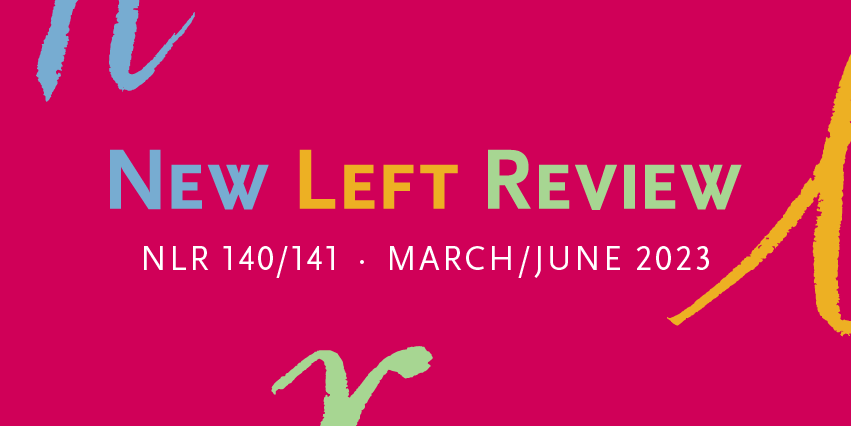- 10 Posts
- 72 Comments

 21·1 year ago
21·1 year agoThe first right listed in the European Convention on Human Rights is property. There is no corresponding right to food and shelter.
What human rights ought to be is a contestable thing: under capitalism we’ve put property (literally) at the top of the list. Much of our society is organised around this principle. What if we gave people the right to democracy in organisations that affect their lives? Their workplaces, schools, local hospitals, universities, even shops? The right to habitable shelter, food, and free healthcare? The right to meet their needs through the formation of associations like cooperatives?
Human rights have a dual purpose, insofar as they both express and enforce a social ideal. They’re both cause and effect of hegemony, and they’ll carry hegemonic values within them.
Plus my guess is that most of the people complaining about this are happy to lob big words around on the internet but have never once actually campaigned for the rights of anyone whose rights have been violated.
Consistently between 18C and 25C during the day, very little wind chill, moderate humidity. Some signs of drought elsewhere in the country but the river near me seems fine, probably thanks to a nature reserve.
This hasn’t stopped everyone panic buying portable air conditioners and complaining about the heat.
Woah. Iceland? Svalbard?

 1·1 year ago
1·1 year agoTIL, this is awesome! Thanks.
Handily devops/sysadmin communist reporting in if you want a hand :D

 10·1 year ago
10·1 year agoAlmost like perpetuating a system of privilege and patronage based on social position doesn’t lead to the best outcomes. Crazy, I know.
“This is not how NATO member states behave”
Not enough torture I guess
There’s not much you can do except advocate for the use of DANE in browsers: this lets site operators pin their certificates in DNS. It is tricky because it is linked to the operation of DNSSEC at the moment. Have a read:
https://en.m.wikipedia.org/wiki/DNS-based_Authentication_of_Named_Entities
Stallman is pretty much one of us, actually. He has a relationship with Cuba, opposes US sanctions, and literally invented copyleft licensing.
Use the search bar on his site for “Cuba”: https://stallman.org/
To be honest, after 20+ years of using Linux and working in tech I’ve concluded it is not the openness of the tech that matters, but the governance of the providers. I’ve been tinkering with running a little ISP doing email, nextcloud hosting, etc, and running it as a cooperative.
That’s to say that the socialist thing is public ownership, and the nearest we can come to that is coops, at the moment. Governing provision is much more interesting on the basis that it enables people who aren’t terminally online to make good choices.
I’ve had a scroll through and many of the answers seem to relate to the US, which doesn’t show any evidence of undergoing decolonisation any time soon.
A better example is the Chilean constitution that was put to a referendum relatively recently, albeit unsuccessfully: its key features were recognition of Chile’s plurinational status, with added rights for indigenous people and communities. Have a read about it here:
https://en.m.wikipedia.org/wiki/2022_Chilean_national_plebiscite
Bolivia has a plurinational system too, but I am not as familiar with it so can’t vouch for it.
In any case, Latin America is where to look. From a brutal experience of colonisation and US/UK backed dictatorship to what is slowly becoming a recognition that justice needs to be done. They’re way ahead of the west.

 2·1 year ago
2·1 year ago“People Operations” was one variation on that I was surprised by
NLNet are fine - they tend to fund projects that promote free and open alternatives to gigantic american companies. If memory serves they’ve funded mastodon, and lots of other small projects too.
I had no idea they did this. That’s straight out of the Greater Serbia playbook. What on earth are they thinking?

 12·1 year ago
12·1 year ago“Tax burden” gets me. Sure is a burden to have public services that improve the world you live in, right?!

 27·1 year ago
27·1 year agoTheir “you use technology” thing is weird too. We’re not Amish. We just want to end the domination of the world by capital, not get rid of all capital goods.
I guess I shouldn’t be surprised that people can be so reflexively and unthinkingly wrong.
Turns out I didn’t see this reply at the time, but: yes! The focus on individuals blinds us to the processes. I’ve an interest in the splits that occurred that we’re talking about here and I honestly have no idea what forces out there in the world could have led to them: the Great Man approach is blinding.
On that note… any idea what a good not-Great Man book covers this kind of thing?
I’ve been fairly successful doing it on my own from yoga videos (Sarah Beth Yoga on YouTube seems to be where I often end up) and did pay for a subscription to a channel for a while. I can confirm the many health benefits, and it is probably something I need to pick up again.
I’ve not had any ridicule for being a man who does yoga, but I was definitely not very welcome in any of the (almost exclusively female) yoga classes I attended. It sucks, but equally I can see the reasoning, some of the poses are kind of um, open? And people get embarrassed. Less so around people who they generally assume won’t subject them to a sexualised gaze, I suppose.
Still, it is great. My first crow pose was epic, and I felt amazing. Anyone who needs a goal to work towards to get motivated should definitely go for that.






Weirdly naive question when you have actual, existing socialism around the world to look at and learn from. Just saying.